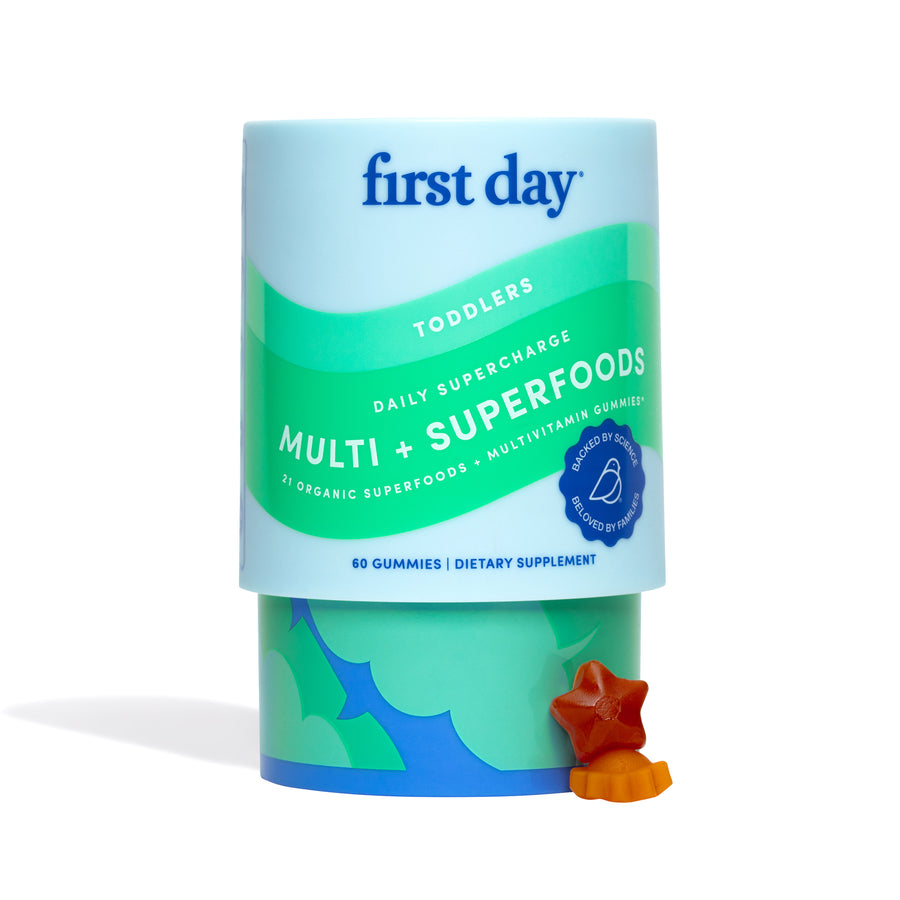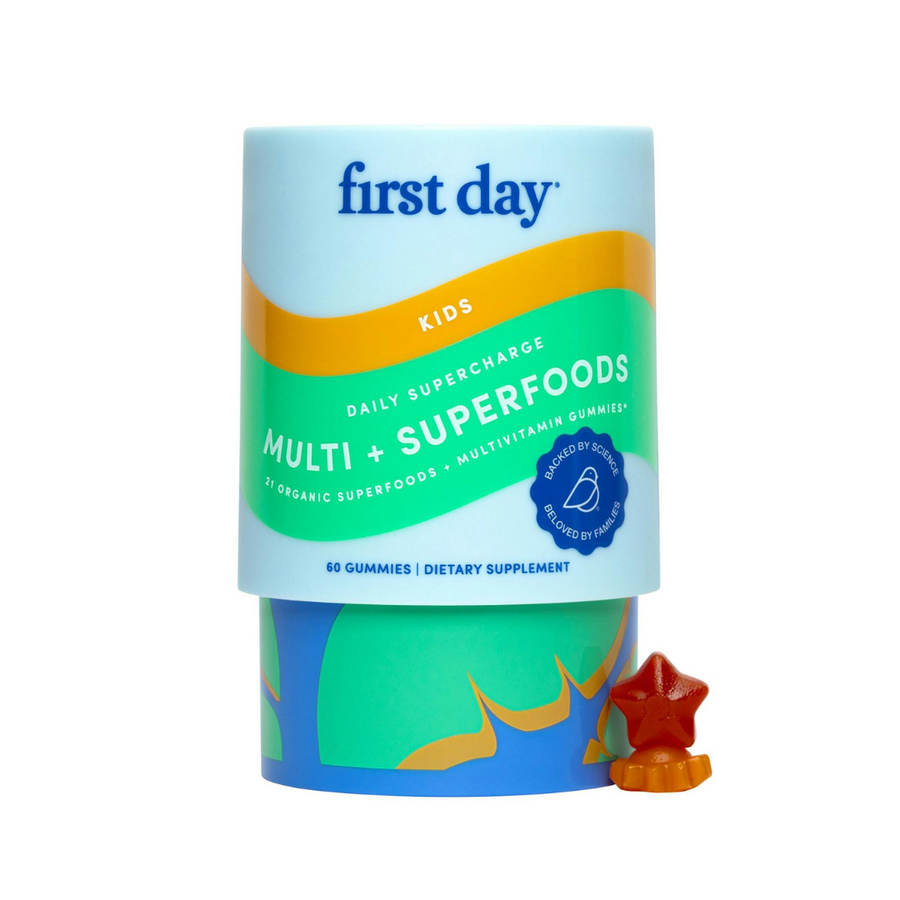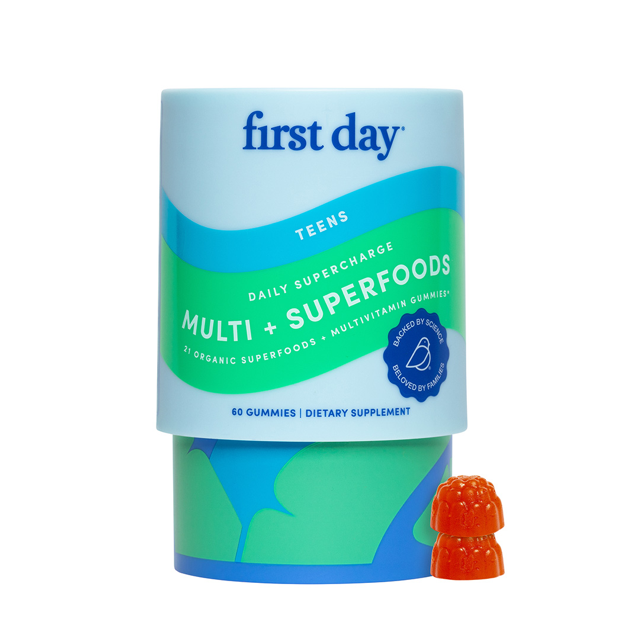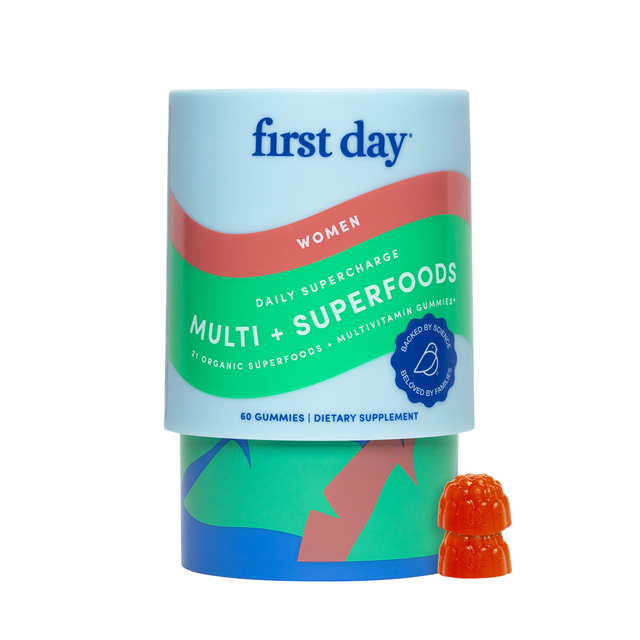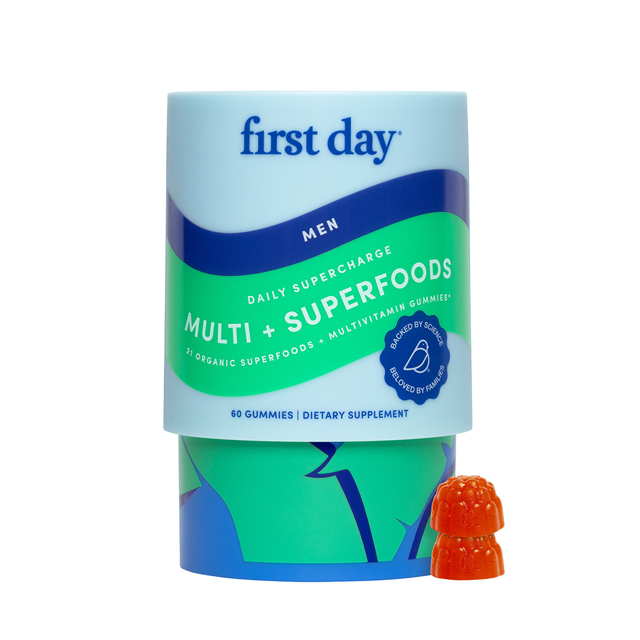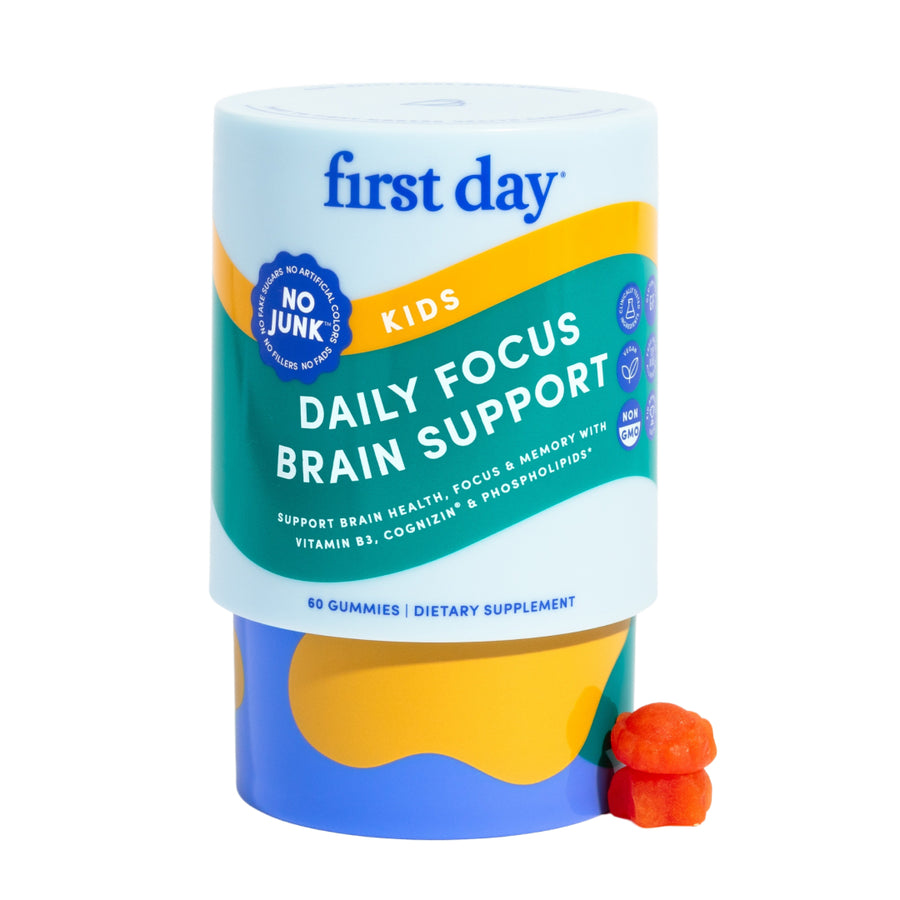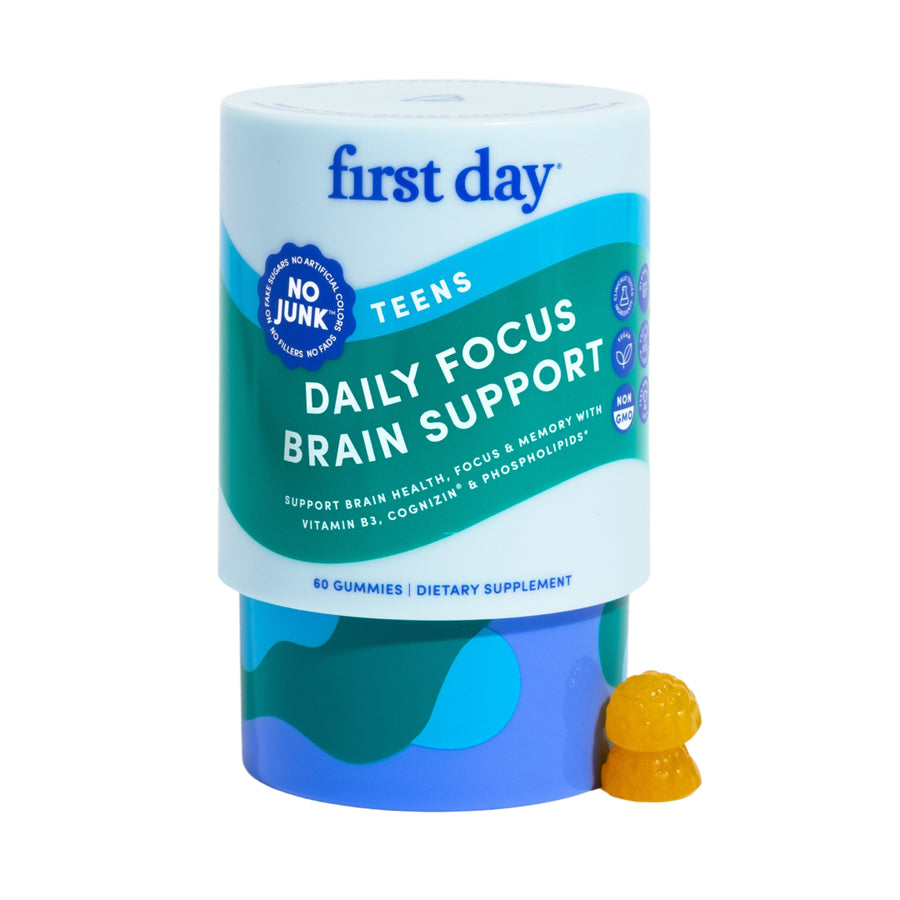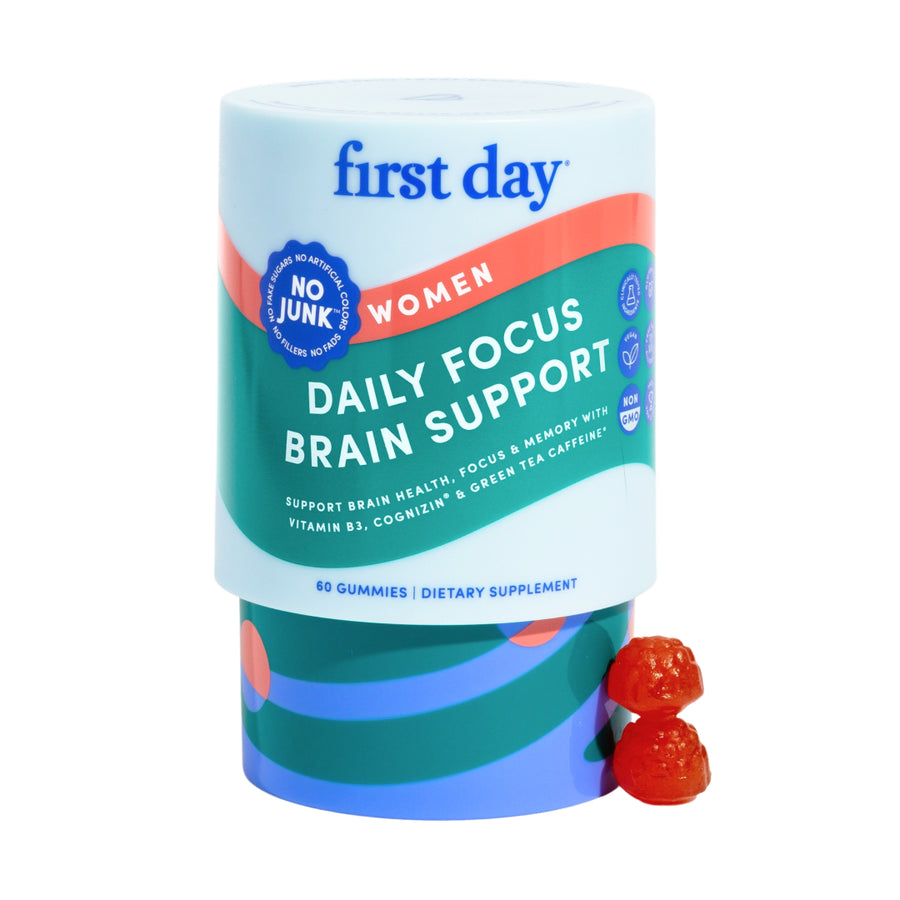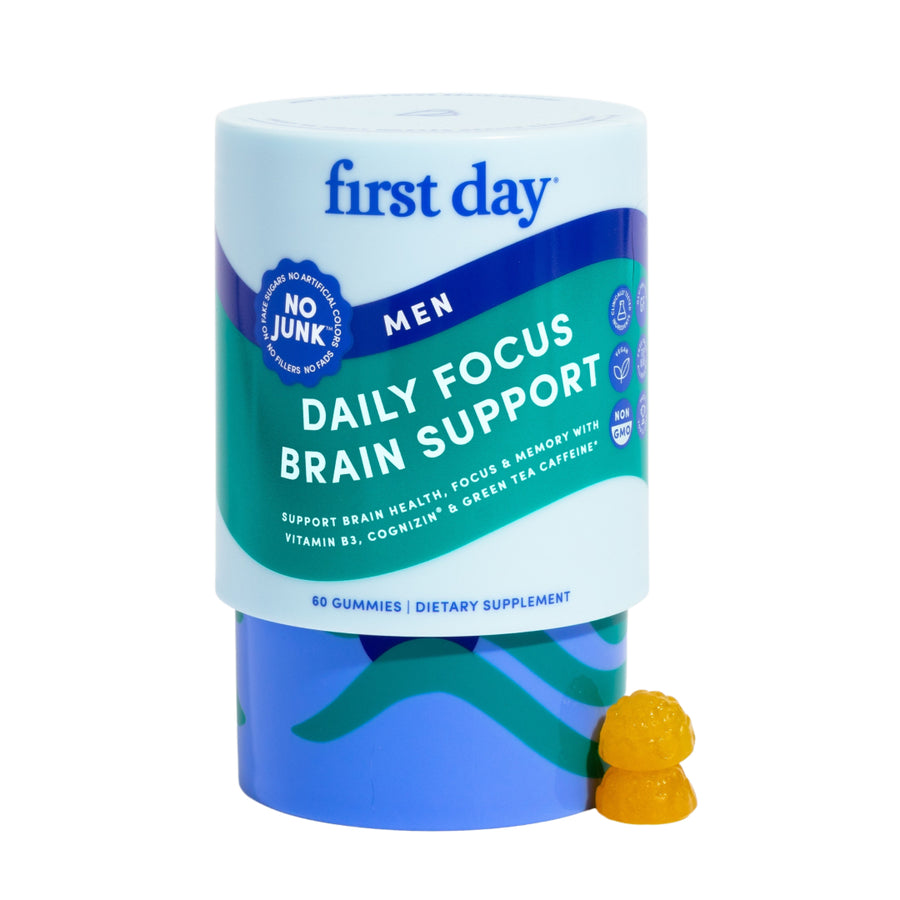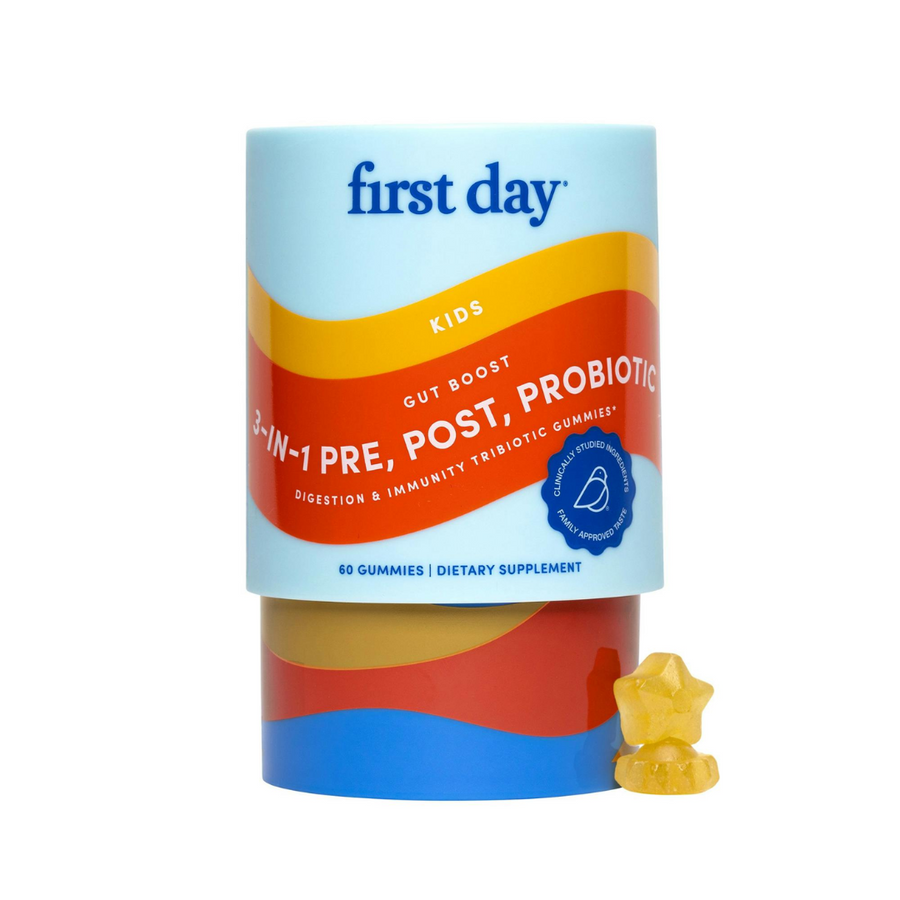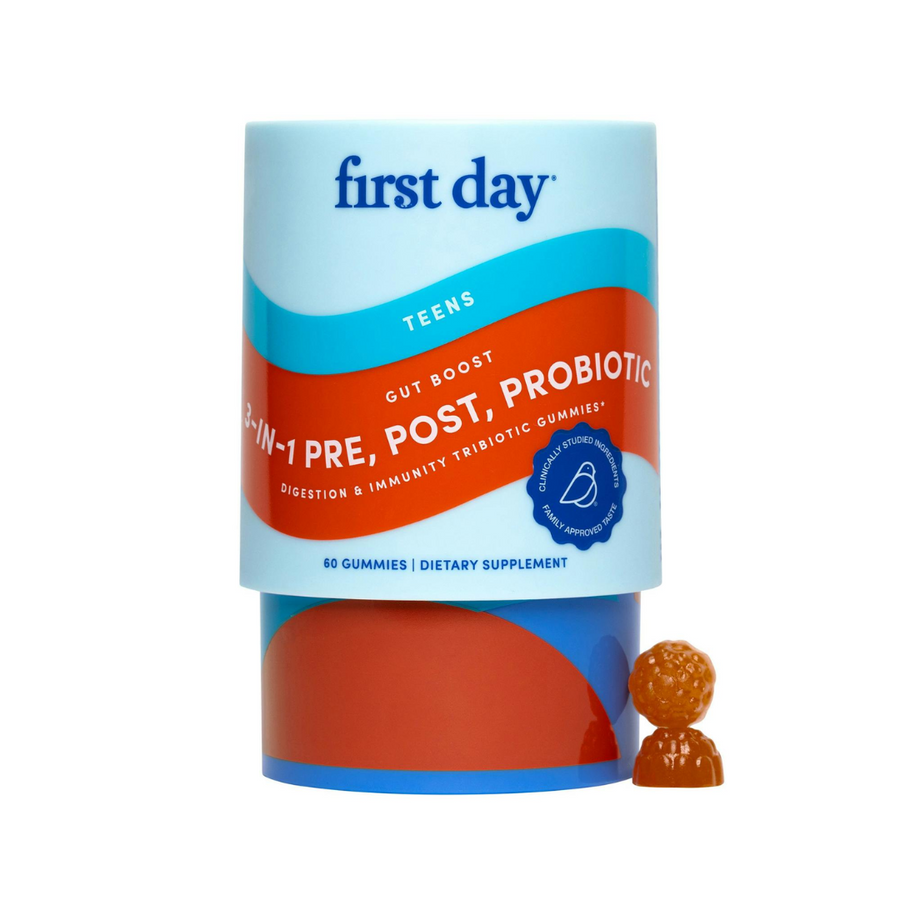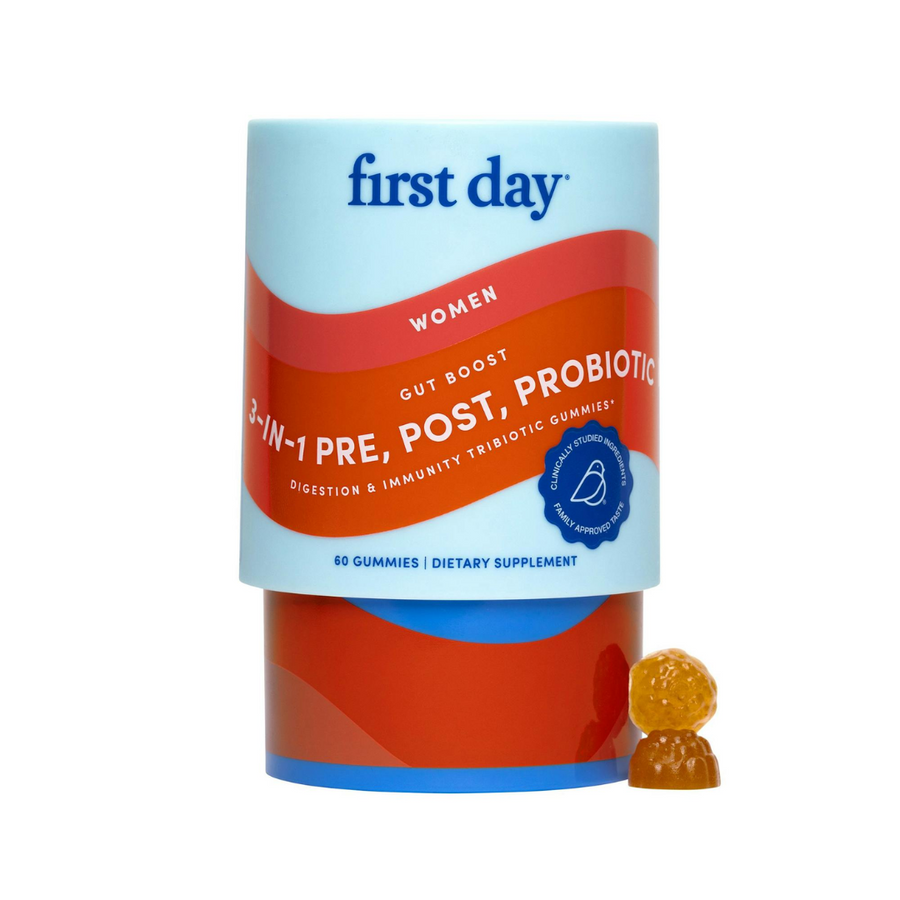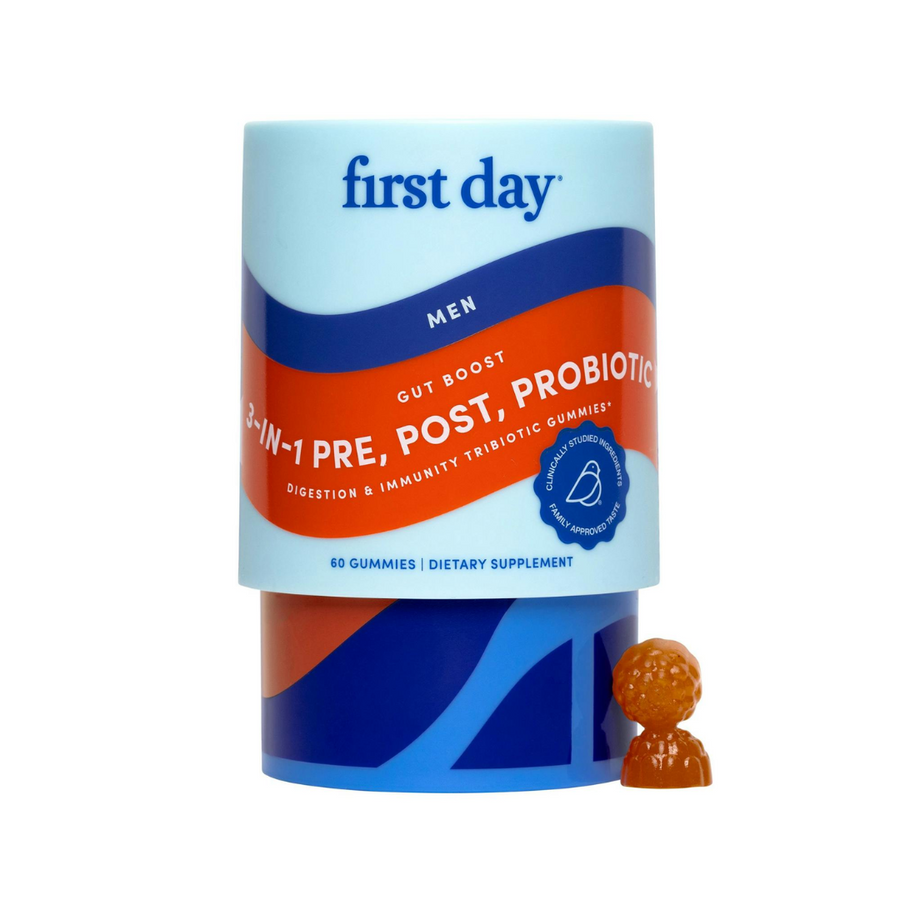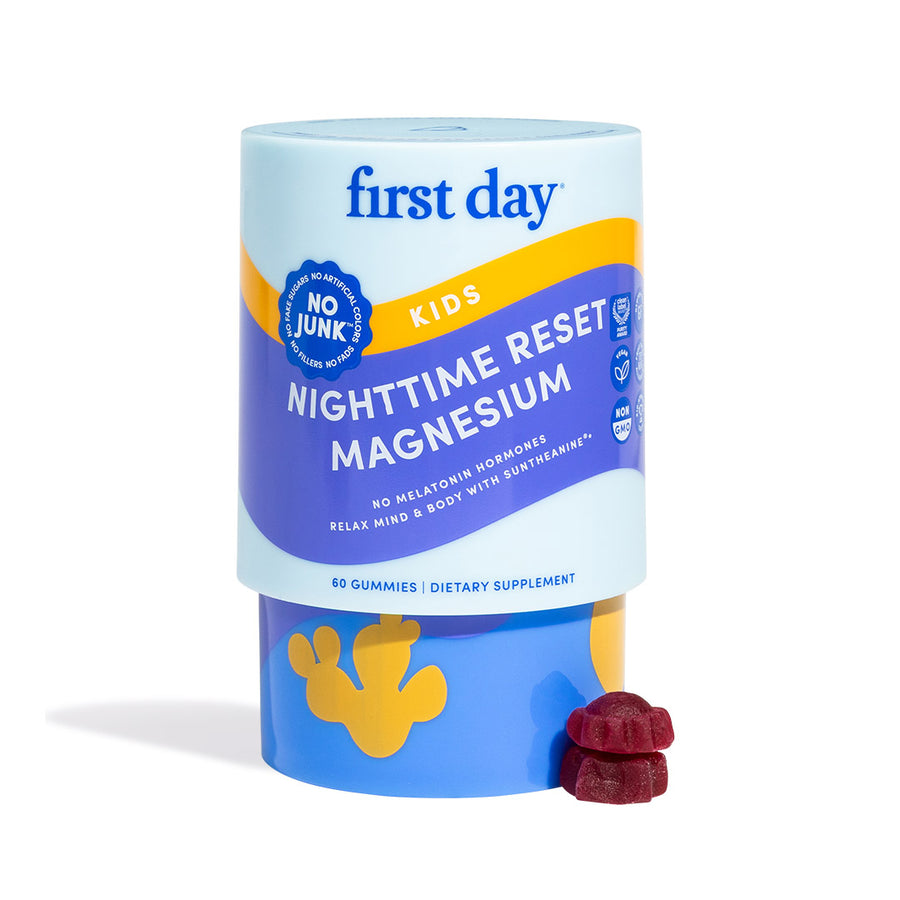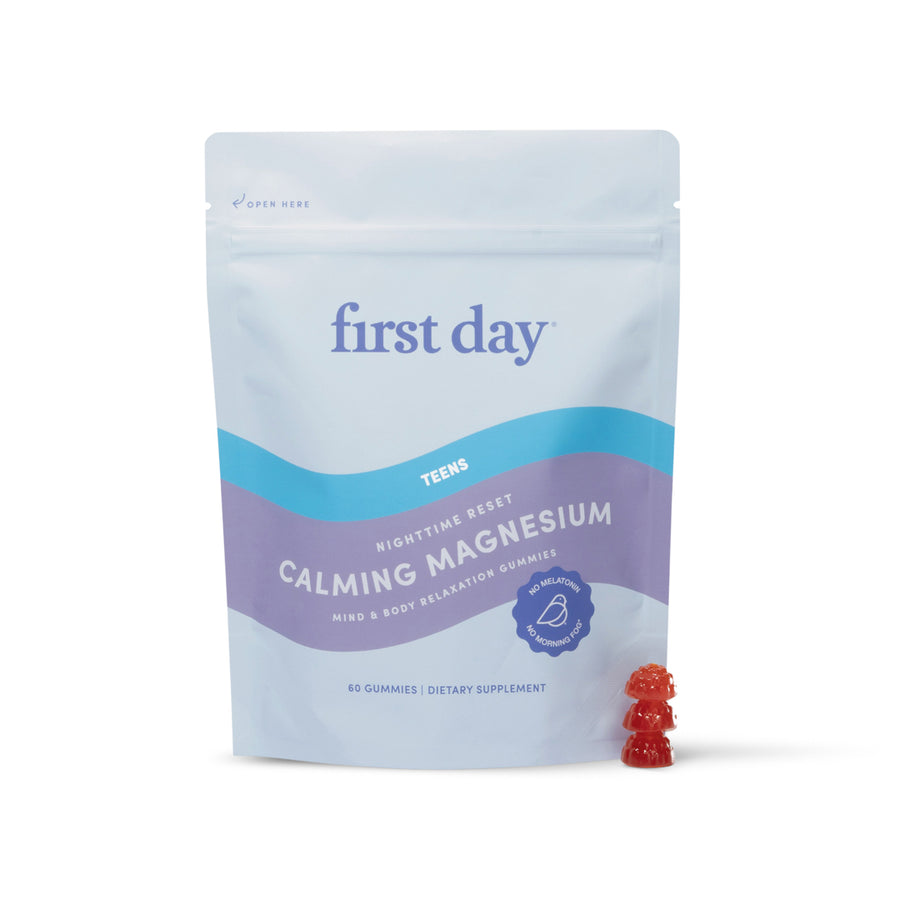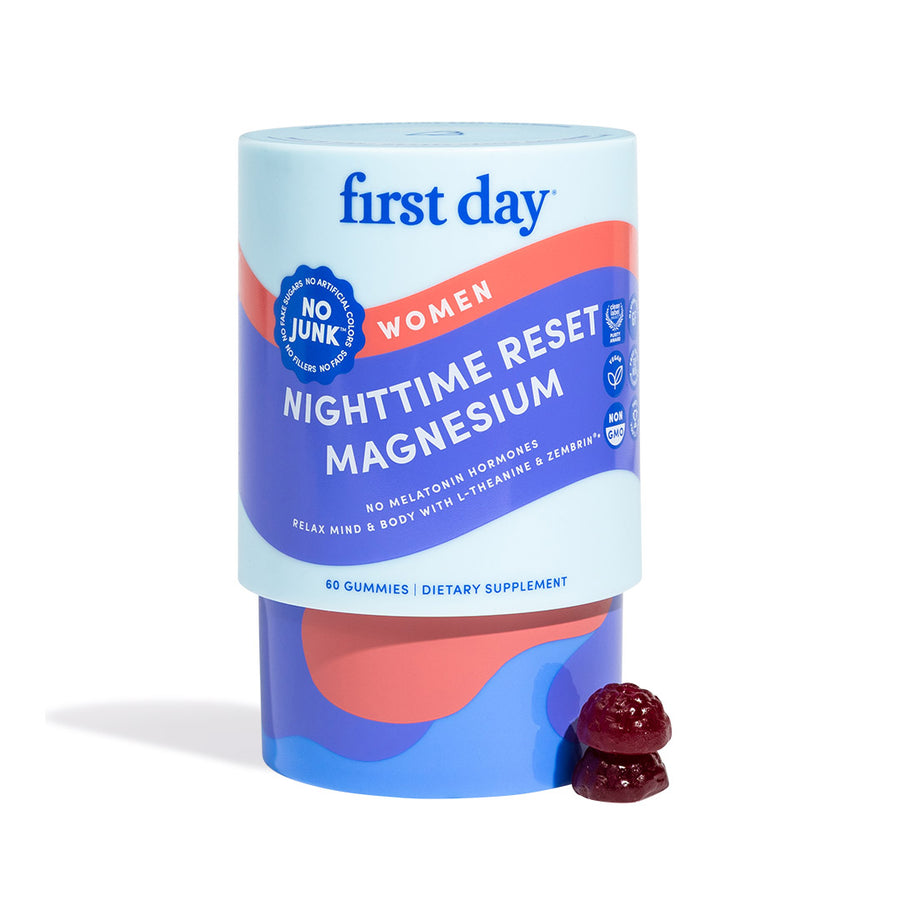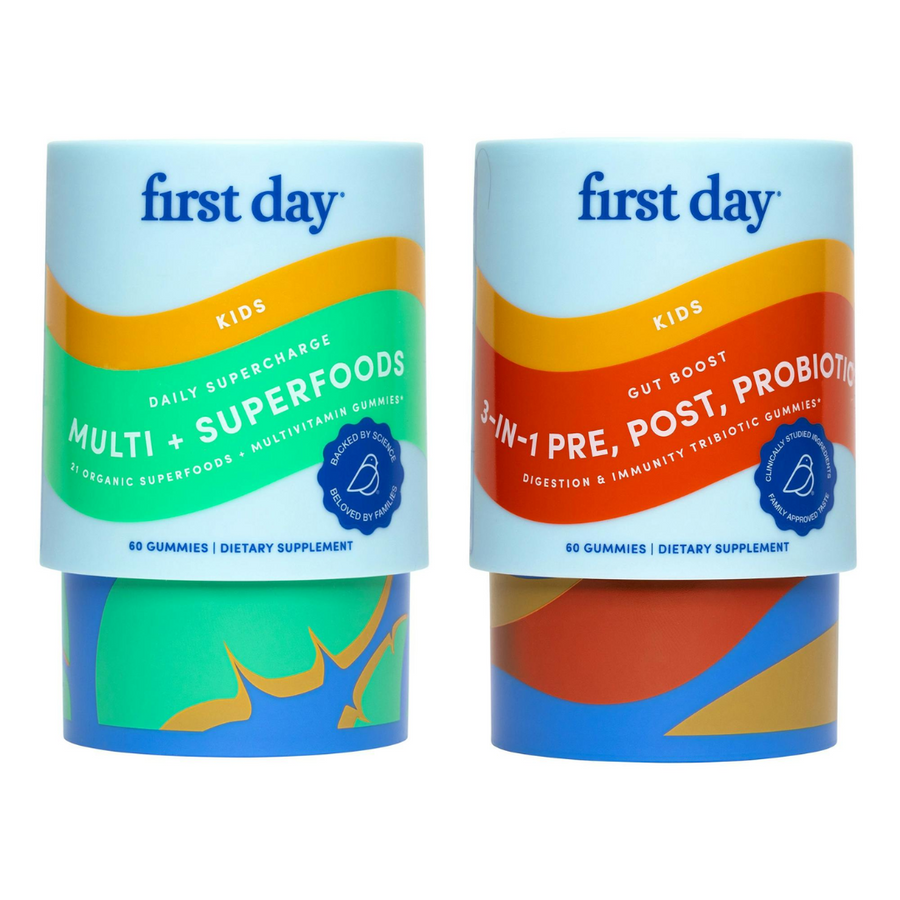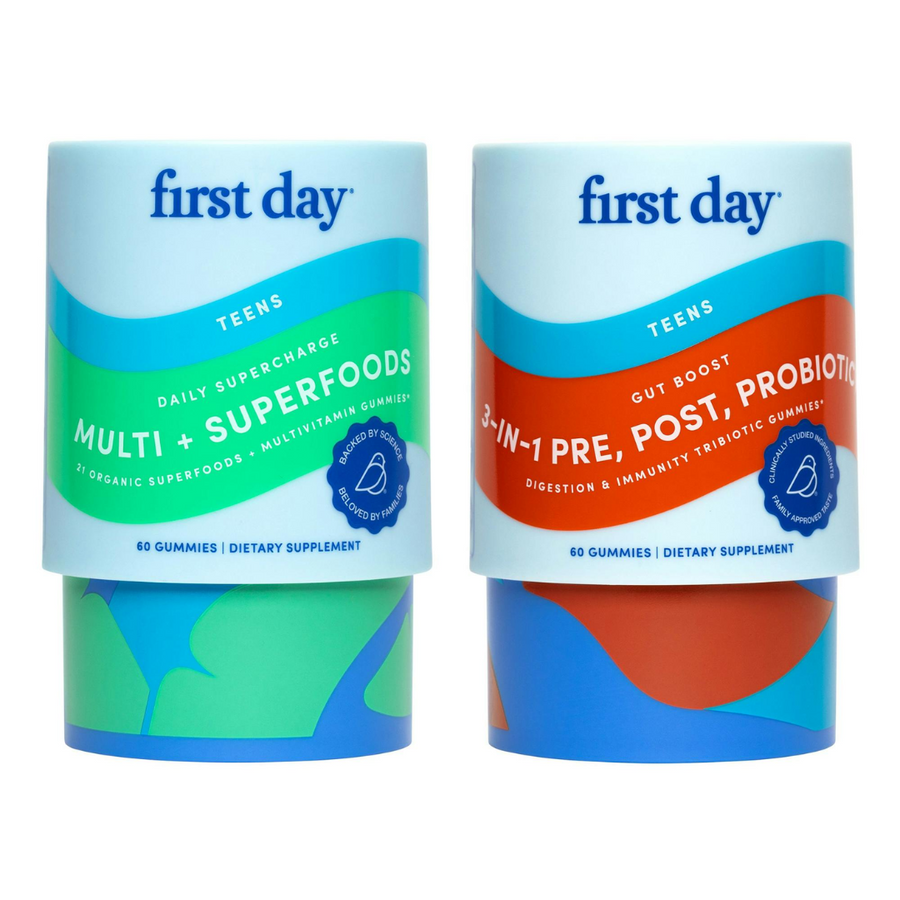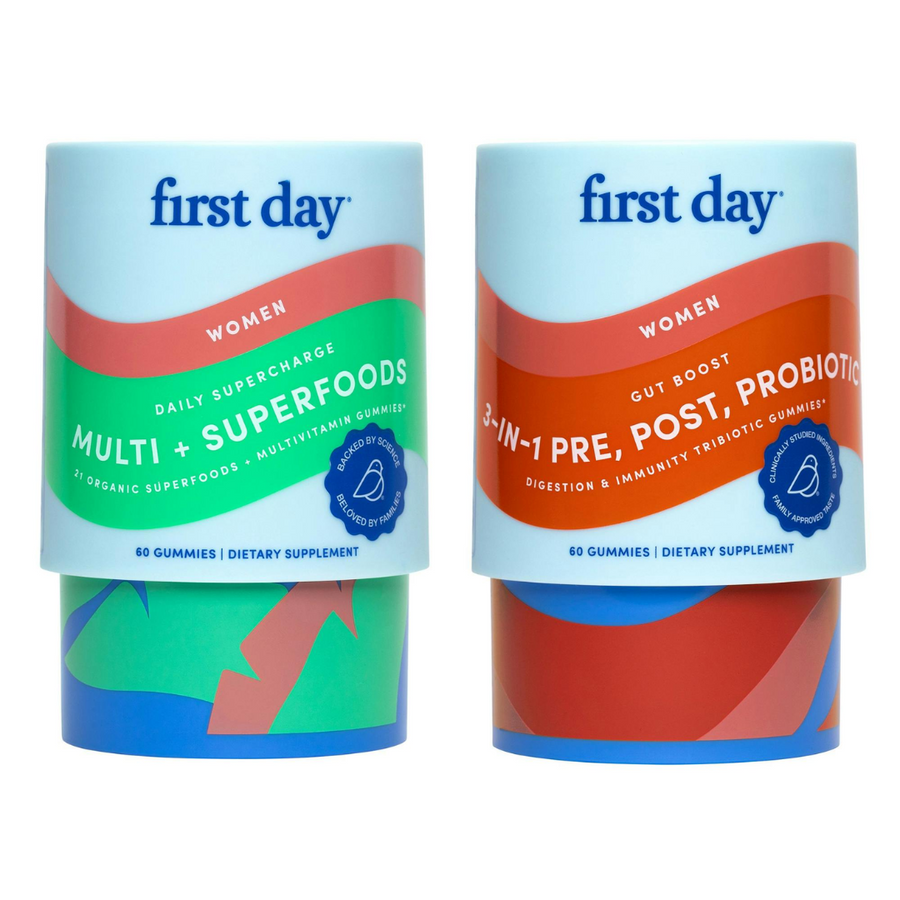Ever felt like your stomach's on a little bit of a rollercoaster? Maybe some bloating here, a bit of discomfort there - nothing too wild. Well, it turns out that what we feed our gut could be the ticket to better health. Enter prebiotics. The benefits of prebiotics extend beyond our digestive tract as they not only keep our gut happy but play a huge role in our overall well-being too.
Prebiotics are types of dietary fiber that feed the good bacteria in our gut - the power snack for your gut's beneficial bacteria, helping them grow and flourish. This process doesn’t just boost our digestive health; it's also a big thumbs up for our immune system and mood regulation, and even helps with weight management.
In this blog post, we're going to dive into the many benefits of prebiotics. We'll explore what they are and how to incorporate them into your diet for a healthier gut and a happier you.
What's the Deal with Prebiotics?
Alright, so you've heard that prebiotics are good for you, but what's the magic behind the scenes? How do they actually do their thing in your gut?
The Inside Scoop on How Prebiotics Work
Prebiotics are essentially the indigestible fiber compounds that your gut's good bacteria or probiotics feast on to grow and multiply. They're indigestible by the body, meaning they make it through your stomach and small intestine untouched until they reach the colon. Here, they ferment and become the ideal fuel for your gut flora. This increase in good bacteria helps to balance out the bad, keeping everything in check for a healthy digestive system.
Several studies highlight the role of prebiotics in enhancing gut health. For instance, a 2020 study published in the Journal of Functional Foods found that daily intake of prebiotics led to an increase in beneficial gut bacteria, particularly bifidobacteria, which is known for its positive impacts on the gut.
Types of Prebiotics and Where to Find Them
Prebiotics come in several forms, but the big three are Inulin, Fructooligosaccharides (FOS), and Galactooligosaccharides (GOS). I know, these words are crazy, right?!
- Inulin: Inulin is kind of the overachiever in the prebiotic family. You’ll find it in chicory root, garlic, onions, and asparagus. It's known for its capacity to boost gut bacterial growth.
- Fructooligosaccharides (FOS): Next up, Fructooligosaccharides or FOS. Found in bananas, onions, garlic, and asparagus, this prebiotic supports the gut's resident bacteria by encouraging their growth and activity.
- Galactooligosaccharides (GOS): Lastly, Galactooligosaccharides or GOS, which is a byproduct of lactose conversion and can be found in legumes like lentils and chickpeas. It’s particularly good at boosting bifidobacteria populations in the gut, making it another important player in the prebiotic lineup.
Why Your Gut Loves Prebiotics
The benefits of prebiotics for gut health cannot be overstated. Not only do they feed the good bacteria, but they also help in the production of beneficial short-chain fatty acids like butyrate, propionate, and acetate. Short-chain fatty acids are tiny molecules produced when your gut bacteria ferment prebiotics. They're super important for keeping your gut lining healthy, reducing inflammation, and may even lessen the risk of certain diseases.
Also, nobody likes feeling blocked up or too loose. Thankfully, by feeding the good bacteria in your gut, prebiotics help regulate your bowel movements, making those bathroom trips more predictable and less of a headache. A 2022 clinical trial in the Nutrients journal found that prebiotic-rich diets contributed to improved consistency and frequency of bowel movements among participants, showcasing the benefits of prebiotics in maintaining digestive balance.
And it's not just about boosting the good days; it's also about shielding you from the bad ones. Prebiotics play a significant role in preventing various digestive disorders, including irritable bowel syndrome and certain types of gastrointestinal infections. A study conducted in 2018 highlighted that prebiotics could alter gut microflora in a way that reduces inflammatory bowel disease and improves symptoms of irritable bowel syndrome (IBS). This means less discomfort, bloating, and pain – all thanks to the preventative power of prebiotics.
Prebiotics Pumping Up Your Immune System
Prebiotics are not just about gut happiness; they're also key players in beefing up your body's immune function. A standout study from Trends in Food Science & Technology in 2021 showed that diets rich in prebiotics could enhance the functionality of natural killer cells and macrophages - your body's first line of defense against invaders. This means your system is better equipped to fend off those unwanted germs. Therefore, including prebiotics in your diet can not only improve gut health but also positively impact the overall functioning of your immune system.
Prebiotics and Weight Management
Who knew that a bit of fiber can help with healthy weight management?
Taming Your Appetite
Ever feel like you just can't stop snacking? Prebiotics might just be the solution. They’re pretty fantastic at helping you feel fuller, longer. Thanks to their ability to promote the release of appetite-regulating hormones, such as GLP-1, you're less likely to binge on those midnight snacks. So rather than reaching for those cookies, try adding some prebiotic-rich foods to your meals for a more satisfying and healthier option.
Stoking the Metabolic Fire
Not all heroes wear capes; some just silently boost your metabolism. By altering the composition of the gut microbiota, prebiotics can enhance metabolic health, which is a fancy way of saying they help your body burn fat and sugar more efficiently. This can lead to an improved glucose metabolism, reducing the risk of developing metabolic disorders like obesity and type 2 diabetes.
Taking Heart Health to Heart with Prebiotics
Blood pressure doesn't have to be a buzzkill. Prebiotics step up the game here by helping keep those numbers in a healthy range. Research published in Molecular Sciences showed that a diet enriched with prebiotics can lead to improvements in blood pressure readings among individuals with hypertension. This suggests that tweaking your diet to include more prebiotics could be a simple strategy for managing blood pressure.
However, this doesn't mean that prebiotics should replace medications or other therapies for managing hypertension. Always speak to your doctor before making any changes to your treatment plan. They may also recommend including prebiotic-rich foods in your diet and a prebiotic supplement to complement any prescribed antihypertensive medication.
The Inside Scoop on Prebiotics and Your Brain
The gut-brain connection is your body's internet, sending messages back and forth to ensure everything is running smoothly. Prebiotics keep this line of communication clear, positively influencing your mental health. There's growing evidence to suggest they might even give your brain a bit of a boost. A study showed that dietary prebiotics can improve cognitive performance and enhance sleep cycles, which is closely linked to better memory consolidation. That means by simply adding some prebiotic-rich foods to your diet, you could be helping your brain store and process information more efficiently.
Glowing Skin Starts from Within
Who says skincare just stops with lotions and potions? Nourishing your gut with prebiotics is like giving your skin a helping hand from the inside out. You see, when your gut is happy, it shows on your skin. There's this fascinating link between your gut health and any inflammatory skin condition; it's all interconnected through what experts call the "gut-brain-skin axis". Basically, if your gut flora is balanced and thriving, it’s more likely to reflect in your skin's appearance, making it look healthier and possibly even glowier.
The Science Behind the Glow
The mechanism behind this is pretty awesome. Prebiotics stimulate the growth of healthy bacteria in the gut. These good bacteria then produce short-chain fatty acids (SCFAs), which play a crucial role in maintaining the gut barrier's integrity and preventing unwanted substances from entering the bloodstream. When these substances leech into the bloodstream, they can trigger inflammation throughout the body, including the skin. This can manifest as acne, eczema, or other skin issues.
Snack Your Way to a Happier Gut

Alright, who's ready to turn their kitchen into a prebiotic paradise? It’s not just about piling on the fiber; it's how you make each bite count for your gut health.
Where to Find Prebiotics in Your Pantry
Natural food sources of prebiotics are all around us, and they’re probably sitting in your pantry or fridge right now! Foods like garlic, onions, bananas, oats, and apples are packed with fibers that your gut buddies love to munch on. Not only do these foods feed the good bacteria in your gut, but they also come with a bunch of other health benefits, like vitamins, minerals, and antioxidants. Feeding your gut with these foods can help improve digestion, enhance nutrient absorption, and even boost your mood.
Recipe Time: Cooking Up Gut-Friendly Dishes
Prebiotic-rich recipes and meal ideas are not just good for your gut; they’re a treat for your taste buds too! Think of smoothies with bananas and apples, savory oat pancakes for breakfast, or a garlic-infused stir-fry for dinner. Incorporating high-fiber foods into your meals is a delicious way to support your digestive health and keep those gut microbes happy. Cooking for your gut health can be as easy as adding an extra serving of vegetables or swapping out white rice for something with more fiber, like quinoa or barley.
The Easy-Peasy Lemon Squeezy Way to Get Your Prebiotics
And for those days when life just gets too busy, prebiotic dietary supplements can be a real game-changer. But why settle for just prebiotics when you can have a power-packed trio? Our First Day tribiotics not only bring you the gut-loving goodness of prebiotics but also add the balancing act of probiotics and the nutrient-absorption benefits of postbiotics into the mix. Studies have shown that combining prebiotics and probiotics, as well as postbiotics can offer a more comprehensive approach to maintaining gut health than taking prebiotics alone. These yummy gummies are designed for the whole family, making it super convenient to get that gut-health boost. Taking Tribiotics means you’re supporting your digestion, immune system, and brain health all in one go. Plus, who can say no to a gummy that tastes good and does good?
Reap The Benefits of Tribiotics Today & Save 15% Today!
Ready To Reap The Benefits of Prebiotics?
It's clear that the gut is more than just a food processor; it's core to our well-being, influencing everything from our mood, and skin health, to our immune system. By incorporating prebiotics into our daily diet, we're not just eating for one; we're feeding a whole community of beneficial microbes that, in turn, take care of us. Whether it's through delicious, prebiotic foods or the convenient boost of First Day tribiotic gummies, supporting our gut health is a no-brainer. With just a gummy away, you could be on your way to a happier gut, sharper mind, and glowing skin.
Why wait to feel your best? Grab First Day tribiotics now and kickstart your journey to optimal gut health.
Rational use of prebiotics for gut microbiota alterations: Specific bacterial phylotypes and related mechanisms. (2020). Journal of Functional Foods, 66, 103838. https://doi.org/10.1016/j.jff.2020.103838
Le Bastard, Q., Chapelet, G., Javaudin, F., Lepelletier, D., Batard, E., & Montassier, E. (2019). The effects of inulin on gut microbial composition: a systematic review of evidence from human studies. European Journal of Clinical Microbiology & Infectious Diseases, 39(3), 403–413. https://doi.org/10.1007/s10096-019-03721-w
Sabater-Molina, M., Larqué, E., Torrella, F., & Zamora, S. (2009). Dietary fructooligosaccharides and potential benefits on health. Journal of Physiology and Biochemistry, 65(3), 315–328. https://doi.org/10.1007/BF03180584
Mei, Z., Yuan, J., & Li, D. (2022). Biological activity of galacto-oligosaccharides: A review. Frontiers in Microbiology, 13. https://doi.org/10.3389/fmicb.2022.993052
Silva, Y. P., Bernardi, A., & Frozza, R. L. (2020). The Role of Short-Chain Fatty Acids From Gut Microbiota in Gut-Brain Communication. Frontiers in Endocrinology, 11(25). https://doi.org/10.3389/fendo.2020.00025
Schoemaker, M. H., Hageman, J. H. J., ten Haaf, D., Hartog, A., Scholtens, P. A. M. J., Boekhorst, J., Nauta, A., & Bos, R. (2022). Prebiotic Galacto-Oligosaccharides Impact Stool Frequency and Fecal Microbiota in Self-Reported Constipated Adults: A Randomized Clinical Trial. Nutrients, 14(2), 309. https://doi.org/10.3390/nu14020309
Menees, S., & Chey, W. (2018). The gut microbiome and irritable bowel syndrome. F1000Research, 7(1), 1029. https://doi.org/10.12688/f1000research.14592.1
Role of food nutrients and supplementation in fighting against viral infections and boosting immunity: A review. (2021). Trends in Food Science & Technology, 110, 66–77. https://doi.org/10.1016/j.tifs.2021.01.069
Cani, P. D., Lecourt, E., Dewulf, E. M., Sohet, F. M., Pachikian, B. D., Naslain, D., De Backer, F., Neyrinck, A. M., & Delzenne, N. M. (2009). Gut microbiota fermentation of prebiotics increases satietogenic and incretin gut peptide production with consequences for appetite sensation and glucose response after a meal. The American Journal of Clinical Nutrition, 90(5), 1236–1243. https://doi.org/10.3945/ajcn.2009.28095
Kim, Y. A., Keogh, J. B., & Clifton, P. M. (2017). Probiotics, prebiotics, synbiotics and insulin sensitivity. Nutrition Research Reviews, 31(1), 35–51. https://doi.org/10.1017/s095442241700018x
Yeo, S.-K., Ooi, L.-G., Lim, T.-J., & Liong, M.-T. (2009). Antihypertensive Properties of Plant-Based Prebiotics. International Journal of Molecular Sciences, 10(8), 3517–3530. https://doi.org/10.3390/ijms10083517
Carabotti, M., Scirocco, A., Maselli, M. A., & Severi, C. (2015). The gut-brain axis: interactions between enteric microbiota, central and enteric nervous systems. Annals of Gastroenterology, 28(2), 203–209. https://www.ncbi.nlm.nih.gov/pmc/articles/PMC4367209/
Ansari, F., M Neshat, Hadi Pourjafar, Seid Mahdi Jafari, Shohreh Alian Samakkhah, & Esmaeel Mirzakhani. (2023). The role of probiotics and prebiotics in modulating of the gut-brain axis. Frontiers in Nutrition, 10. https://doi.org/10.3389/fnut.2023.1173660
Mann, E. A., Bae, E., Kostyuchek, D., Chung, H. J., & McGee, J. S. (2020). The Gut Microbiome: Human Health and Inflammatory Skin Diseases. Annals of Dermatology, 32(4), 265. https://doi.org/10.5021/ad.2020.32.4.265
Mann, E. A., Bae, E., Kostyuchek, D., Chung, H. J., & McGee, J. S. (2020). The Gut Microbiome: Human Health and Inflammatory Skin Diseases. Annals of Dermatology, 32(4), 265. https://doi.org/10.5021/ad.2020.32.4.265
Martyniak, A., Medyńska-Przęczek, A., Wędrychowicz, A., Skoczeń, S., & Tomasik, P. J. (2021). Prebiotics, Probiotics, Synbiotics, Paraprobiotics and Postbiotic Compounds in IBD. Biomolecules, 11(12), 1903. https://doi.org/10.3390/biom11121903

